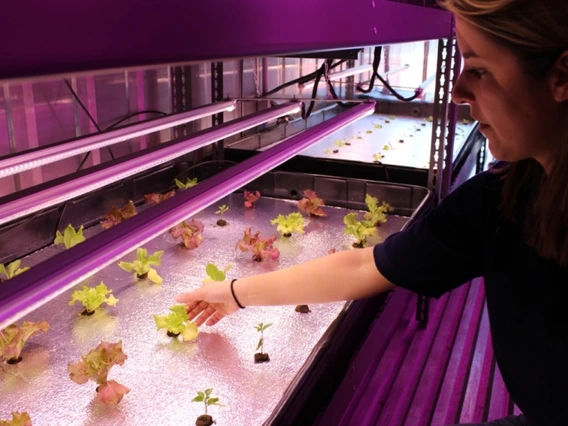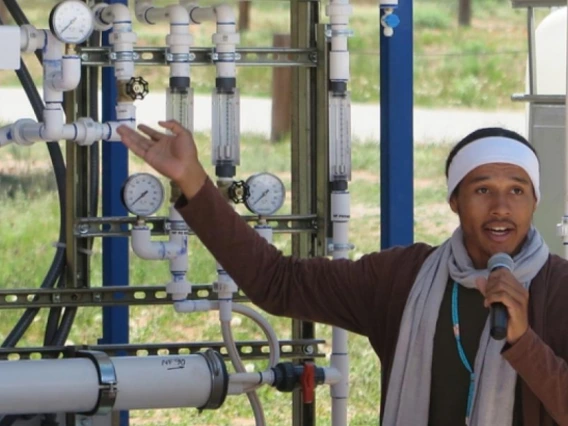Undergraduate Major Programs

Anthropology
Archaeological Sciences Emphasis
Sharpen analytical skills, develop logical arguments on sound data, and learn to understand the current human condition from the perspective of a nuanced historical perspective. Establish a foundation in traditional science classes, such as biology, chemistry and physics, for the in-depth study of archaeological methods and theories.

Applied Humanities
Spatial Organization and Design Thinking Emphasis
Prepare for jobs that communicate about—and effect change in—buildings, cities, and landscapes with courses in sustainability, digital media, fabrication technology, and more. This degree can also be a stepping stone to graduate studies in design, architecture, urban planning, and landscape architecture.

Biosystems Engineering
Develop the skills and knowledge to help guide the world toward a sustainable future by studying ways to sustainably feed an ever-growing world population, harness and preserve natural resources, and overcome environmental challenges. Immersion in design throughout the major prepares you to help protect the health and well-being of humans, wildlife and the Earth.

Chemical Engineering
Lively discussions, one-on-one help, hands-on labs and activities, and design projects prepare you for high-profile research in areas ranging from reusable water to semiconductor manufacturing or a careers in medicine, research, medical product and drug development, food production, water treatment, and manufacturing processes.

Ecology and Evolutionary Biology
Explore evolutionary ecology and genetics in the first department of its kind in the world. Prepare to pursue graduate study or a career such as scientific journalism, developing environmental and scientific policy, or practicing law in related fields through core courses in genetics, ecology and evolution, and additional opportunities for independent research.

Environmental Science
Leadership, Sustainability, and Communication Emphasis
Immerse yourself in environmental laws, regulations and policies to discover how to be part of a successful response to pollution, natural resource management and climate change. Learn to predict how landscapes change under the effects of climate, geology and land use, and what actionable steps are needed to create a sustainable future.

Environmental Science
Physical and Chemical Dynamics Emphasis
Learn how to apply scientific principles to environmental conservation and identify ways to overcome ecological challenges while integrating concepts from biology, chemistry, and physics to comprehend how different environments function as systems. Graduate ready to apply that understanding to the planet's most pressing issues related to soil, water, air, human health, and natural resources.

Environmental Science
Soil, Air, and Water Emphasis
Working in classrooms, labs and in the field, develop a broad scientific understanding of human influence on the natural world, from a molecular level to a global scale, and how environmental systems sustain climate, purify water, provide food and fiber, and remediate pollution.

Environmental Science
The Biosphere Emphasis
Explore the interactions of microbes, plants, animals, and humans with their physical and chemical environments and learn how to apply biological principles to biodiversity while gaining a broad understanding of habitat conservation, restoration, and rehabilitation. Graduate with the expertise, confidence, and connections to solve environmental and human health challenges.

Environmental Studies
This major sheds light on the human dimensions of environmental issues. Explore techniques for addressing pressing social science issues and study physical science techniques as you learn about water, land use, food, energy, the built environment and climate from a critical perspective of policy and social science.
Pagination
Environmental Themes
Career Fields












